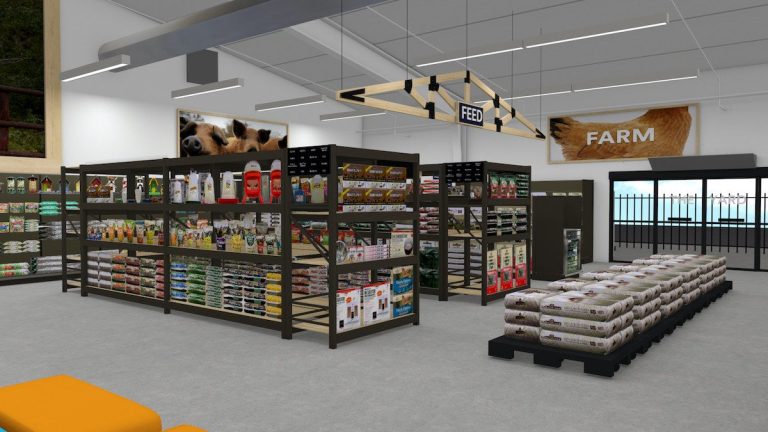Petco Goes After Tractor Supply, Walmart With New Rural Farm Store Format

After a two-year spike in pet ownership and backyard farming, as well as an unprecedented increase in rural relocations made possible by remote work opportunities, the country’s second-largest chain of pet stores is getting into the farm and animal feed business.
In unveiling its first Neighborhood Farm & Pet Supply location in Floresville, Texas, Friday (June 17), Petco said the “community-driven test concept” store format is aimed at tapping into what it sees as a fast-growing $7 billion market for rural animal care, food and supplies.
“This is an exciting opportunity for us to serve more pets by dramatically expanding local access to healthy pet products and services,” Petco CEO Ron Coughlin said in a press release, noting the retailer plans to open “a handful” of stores this year to serve the 14% of Americans now living in rural areas.
To be sure, compared to Petco’s existing fleet of 1,500 stores and 200 veterinary hospitals that generated $5.8 billion in sales last year for the San Diego-based retailer, the new farm format is truly a drop in the bucket.
But what the Floresville store and any additional locations may lack in initial size and scope, they will more than make up for in competition, as a number of well-heeled rivals — all of which also offer omnichannel ordering, pickup and delivery options — will surely be taking note of their new neighbor.
A Bull Fight
With an expanded footprint and business model that it said is aimed at providing one-stop shopping for the care and feeding of chickens, horses, cows, pigs, sheep and goats, as well as traditional companion animals, Petco is aiming directly at rural stalwarts such as Tractor Supply Company, which just so happens to have one of its 2,000 stores located in the same San Antonio suburb of Floresville.
For what it’s worth, the community of 7,000 people is also home to a Walmart, which is well known as a major retailer of food and supplies for cats and dogs but lesser known for offering a full line of aggressively priced livestock feed for delivery.
For its part, while Tractor Supply sells feed and animal supplies, its stores also include a mix of hardware, apparel and footwear, lawn and garden, and power equipment that make it substantially broader than the niche Petco is looking to tap.
Even so, the $22 billion Tennessee-based chain is in the midst of its own growth phase that is being driven by many of the same demographic changes.
“We continue to benefit from the structural tailwinds, such as rural revitalization, pet ownership, homesteading and self-reliance,” Tractor Supply CEO Hal Lawton told analysts on the company’s first-quarter earnings call in April. “Our brand momentum is stronger than ever, and we’re investing to ensure we continue to play offense in the context of these trends.”
With Tractor Supply slated to report its second-quarter results July 1, investors and retail rivals will likely be listening to see if the rural segment leader has any response to the new kid on the farm.